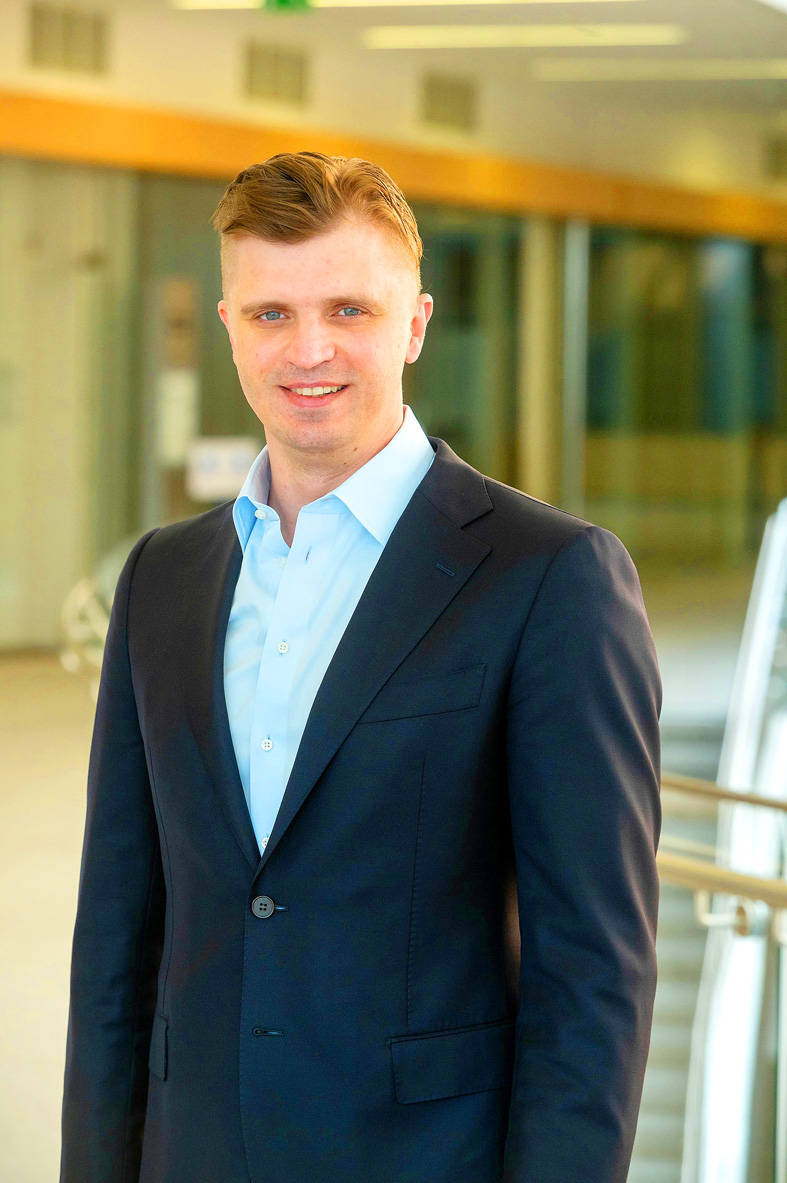《TAIPEI TIMES》 Ex-NATO official lauds Taiwanese tech prowess

Former NATO assistant secretary-general for executive management Giedrimas Jeglinskas poses for an undated photograph at NATO headquarters in Brussels. Photo courtesy of Giedrimas Jeglinskas
By Liu Tzu-hsuan / Staff writer, with CNA
Taiwan can profit from its technology prowess when promoting security cooperation, a former NATO official said.
China’s increasing military intimidation provides Taiwan with an opportunity to highlight its value as a free and democratic partner to European countries, former NATO assistant secretary-general for executive management Giedrimas Jeglinskas said in an interview with the Central News Agency.
NATO has four official partners in the Asia-Pacific region: Japan, South Korea, Australia and New Zealand.
The Quadrilateral Security Dialogue between the US, India, Australia and Japan is expected to expand its focus from political issues to defense technology, said Jeglinskas, who served as Lithuanian vice minister of defense.
Many countries, including Lithuania and other NATO nations, would be interested in cooperating with Taiwan on technology, he said.
Taiwan and Lithuania last year signed a cooperation agreement on semiconductors.
Jeglinskas’ remarks came after NATO last month launched its Innovation Fund with more than 1 billion euros (US$1.1 billion) in funding and an execution period of 15 years.
They also came amid a more general shift of Western states’ security focus on the Indo-Pacific region.
Australia, the UK and the US in September 2021 formed the AUKUS security alliance to help Canberra acquire nuclear-powered submarines.
Experts have said that cooperation of the three states on hypersonic missiles and quantum technology has potential for expansion.
Alessio Patalano, a researcher on East Asian warfare and security at King’s College London, said that Taiwan could join their cooperation on high-tech projects.
Jeglinskas said that the NATO fund is planning to invest mainly in artificial intelligence, quantum technology, autonomous control technology, biotechnology, innovative materials, and space and energy technology for military and civilian use in Europe.
Twenty-two of NATO’s 30 members have joined the fund, which involves funding of more than 500 million euros from the US and Canada.
NATO-led action outside the alliance’s focus area is based on the principle of “consensus decisionmaking,” Jeglinskas said.
Taiwan can apply to participate in NATO-launched technology development projects and become part of the alliance’s “defense technology ecosystem,” he added.
“Partnership will not appear out of thin air,” he said, adding that Taiwan can build trust and the foundation for future cooperation through concrete actions.
NATO is responsible for the safety of 1 billion people in its member states, he said.
“If China is actively investing in disruptive innovations and technologies, we [NATO] must do so, too,” he said, adding that gaining an advantage in technology is key to gaining a military advantage.
The fund encourages Taiwan and other countries in the Asia-Pacific region to develop technologies by pooling public and private resources through venture capital funds, and to seek cooperation with NATO, he said.
The cooperation should be built on the premise of safeguarding a rules-based world order, freedom, democracy and the rule of law, he said.
Expanding NATO’s cooperation outside the North Atlantic area would help maintain the global order amid geopolitical tensions in Asia and China’s attempt to create a new world order, he said.
Countries in the Asia-Pacific region should step up their efforts to build defense technologies focused on deterence, he said.
The best way for Taiwan to deter China is to learn from Ukraine’s efforts to counter the Russian invasion, he said, adding that Kyiv leveraged its advantage gained on the battlefield to dominate negotiations with Moscow.
Jeglinskas last month met with Deputy Minister of National Defense Bo Hong-hui (柏鴻輝) and Deputy Minister of the Interior Chen Tsung-yen (陳宗彥) during their visit to Lithuania.
Jeglinskas said he is looking forward to his first visit to Taiwan.
新聞來源:TAIPEI TIMES










